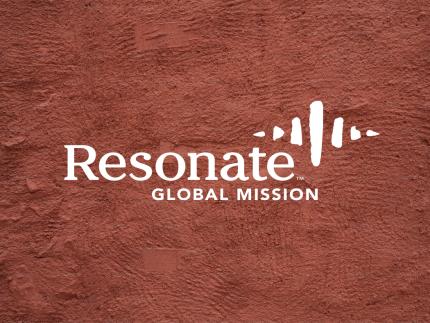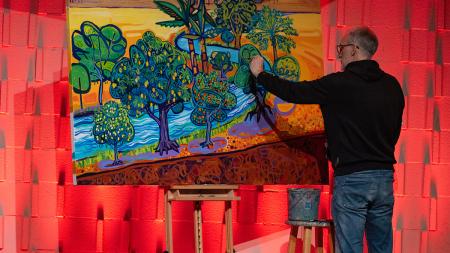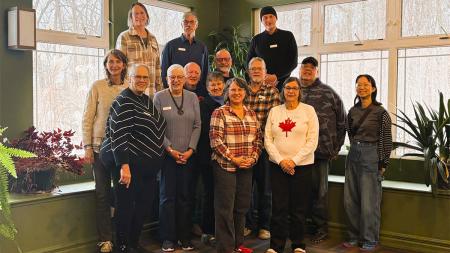Resonate Global Mission Plans for Balanced Budget

At the May Council of Delegates meeting, Resonate Global Mission shared some of the challenges they have been facing in terms of budget planning for the future. These include proposed changes to how the agency will support church planting. The planned changes have already garnered an overture to synod (see Overture 29). The COD spent time discussing this change and ultimately decided to pass along information from Resonate to Synod 2025 to inform the synodical discussion.
“As financial realities shape the future of denominational ministry, Resonate Global Mission is taking deliberate steps to ensure that its work continues with sustainability and global impact,” explained Resonate director Kevin DeRaaf. “A new plan for a balanced budget prioritizes church planting and global mission while recognizing the need to live within current financial means.”
One of the goals of Resonate’s leadership team during this fiscal year has been to work toward a reduced budget for Fiscal Year 2025-26. This has been necessary, DeRaaf explained, because ministry-share giving has been decreasing and Resonate has already spent down much of its financial reserves. However, the reduced-budget push isn’t simply a goal to trim the agency’s budget but also an aim for long-term sustainability.
To achieve this, Resonate has decided to intentionally underspend this year’s budget and to cut 4 million dollars from current ministry expenses next year for a reduction of about 20 percent of total ministry costs.
“It’s important to note that Resonate’s overall revenue has not significantly changed; rather, it has increased in proportion to the decline in ministry shares, keeping overall revenue at around $17-18 million per year over the past eight years,” said DeRaaf. “Despite what is going on in the denomination, financial giving directly to Resonate clearly shows that the CRCNA still places a high priority on mission.”
“This means our supporters’ consistent giving is more important than ever—we will only be able to do as much ministry as the church provides funding for,” he said.
Global and Local Mission Adjustments
International ministry—Resonate’s largest area of expense—is one area that will see proposed cuts. However, the bulk of these reductions will occur through natural staff attrition and careful program scaling. Resonate teams are making these changes by trimming regional grant funding, reducing personnel, and streamlining programming. A denomination-wide fundraising initiative is also planned to help support global mission work and free up general funds for other core ministry needs.
In North America, Resonate’s six regional teams will also continue to serve churches. In this ministry area, however, Resonate plans to reduce staff and cut 70 percent from the church-planting budget. This involves a realignment of how Resonate approaches church-planting support, and it includes a request for renewed commitment from congregational and classis partners.
“Even with leaner operations, Resonate remains committed to helping Christian Reformed churches amplify their mission locally and globally,” said DeRaaf.
Refocusing Church-Planting Efforts
The large cut to church-planting funding generated an overture to Synod 2025 from Classis SouthEast U.S. asking that church planting be reprioritized “within the denominational budget. Church planting is vital to our present existence and our future.”
During the discussion at the May COD meeting, DeRaaf explained that the cuts do not reflect a lack of priority for church planting. Church planting remains central to Resonate’s work, he said. While the value for church multiplication continues, Resonate’s role in how it supports church plants is shifting.
COD member Steve Bussis asked for clarification saying, “It seems to me, and this is probably an oversimplification, that there are two buckets to supporting church plants. One is grant funding, and the other is relational support. It seems that Resonate is saying, ‘We will provide the relational support, and we want classes and churches to provide the grant funding.’”
DeRaaf noted that there is truth to that statement. Resonate’s desire is to provide deeper, more relational, and contextualized support to church planters. Rather than financing church plants directly, Resonate will invest in training, coaching, and assessment to equip church planters for long-term success, relying on local partnerships from other churches in the classis to provide ongoing financial support.
Resonate’s new approach includes expanded coaching by certified mentors, accessible training in multiple formats, thorough assessments for planter readiness, and regular reviews to help congregations and planters thrive. The plan also includes exploring fundraising training to help church planters develop sustainable local support.
While this change does reduce Resonate’s overall budget, the transition is designed not simply as a response to funding constraints. Instead, it reflects a broader vision for sustainable, effective mission work—where local churches and planters take ownership, supported by the denominational expertise and relational networks that Resonate provides.
“We believe this new direction will allow Resonate to remain a thriving, sustainable mission agency and the denomination’s preferred partner in mission for years to come,” said DeRaaf. “We believe the budget we’ve submitted for 2025-2026 reflects the best currently possible distribution of available resources.”


